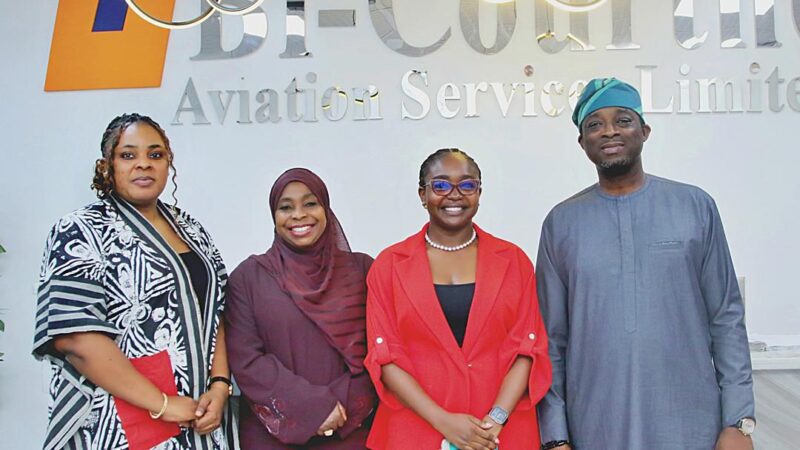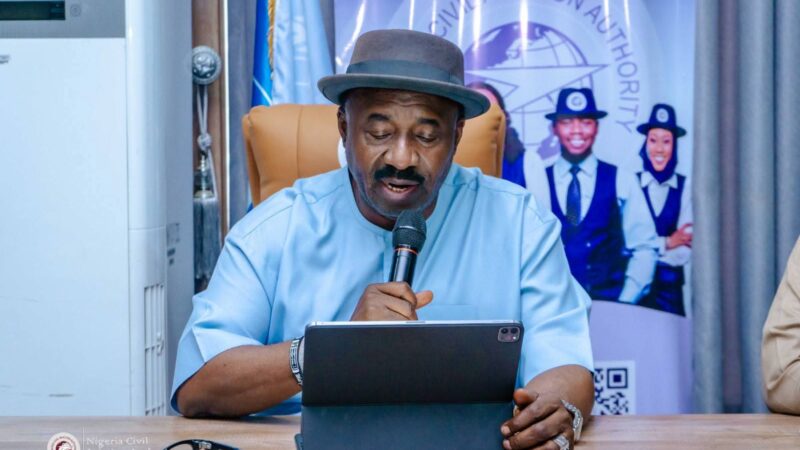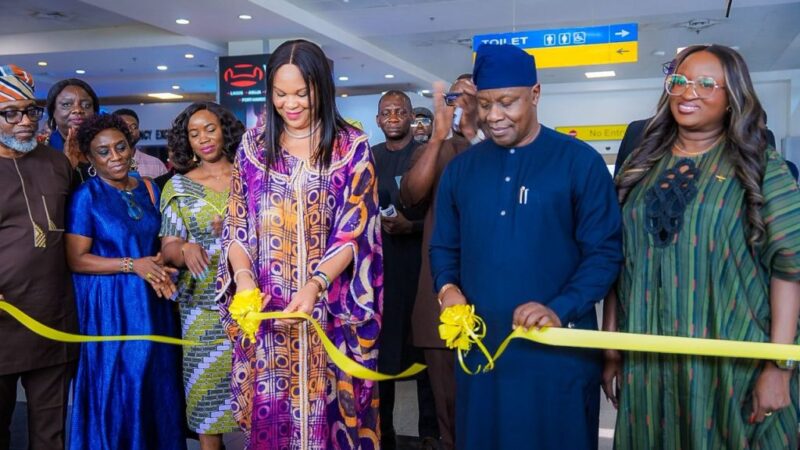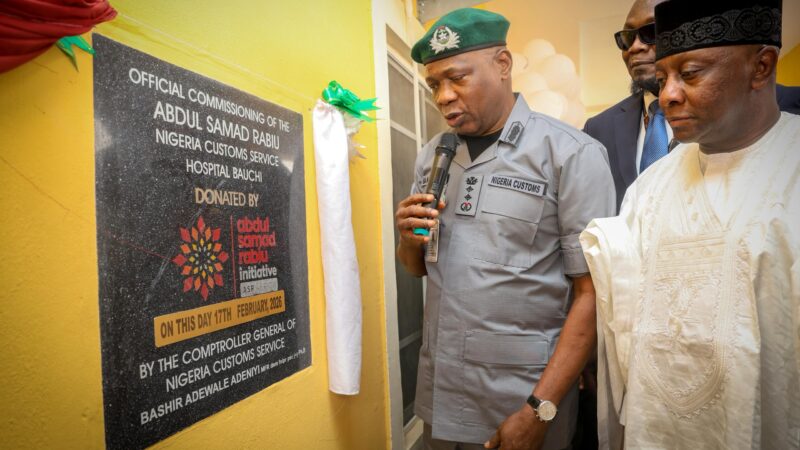Nigeria’s 2024 Budget: Marine Minister proposes N10.9bn budget, prioritises rehabilitation of ports
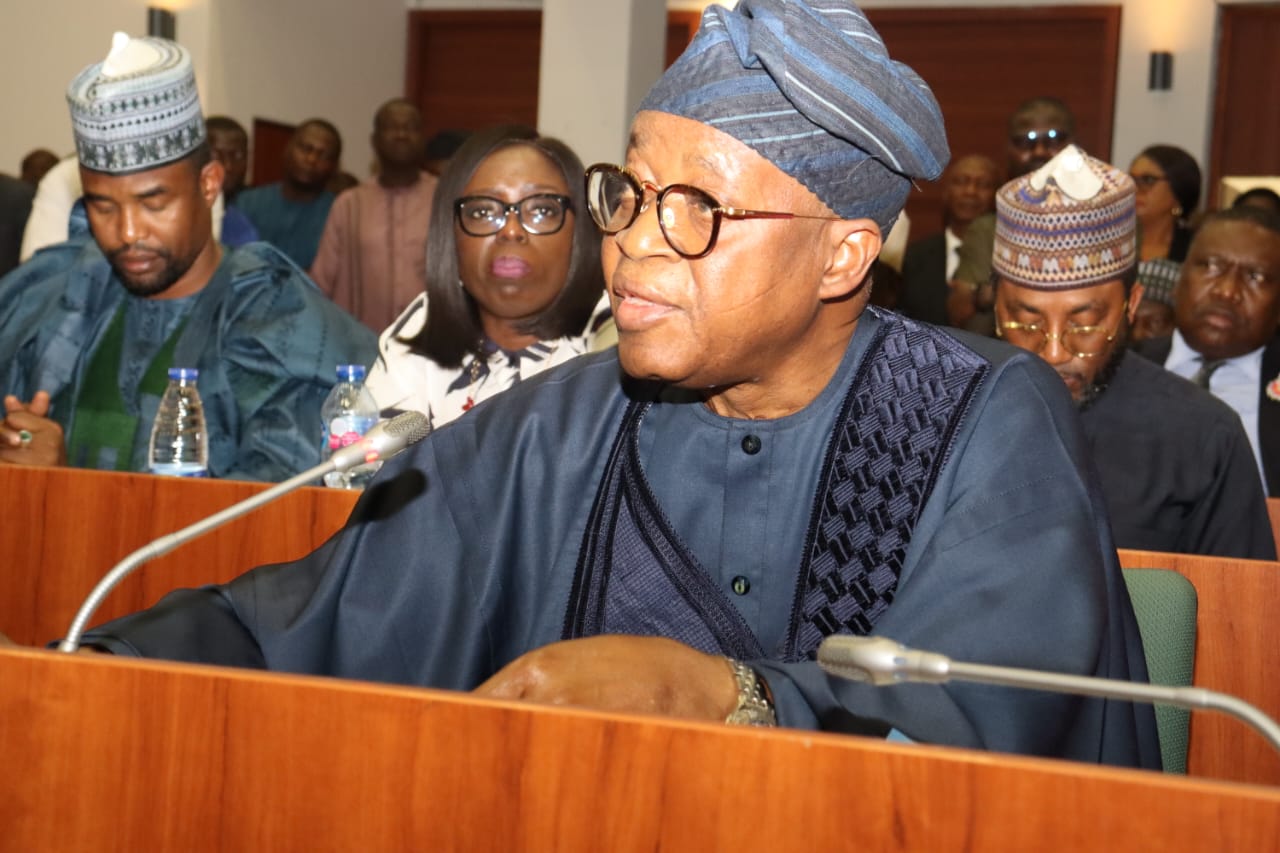
Nigeria’s Minister for Marine and Blue Economy, Adegboyega Oyetola, presented a comprehensive N10.9 billion budget for the year 2024 to the joint House Committees of the Senate on Marine Transport and the House of Representatives Committees on Ports and Harbour, Maritime Safety, Education and Administration, Inland Waterways, and Shipping Services.
The minister addressed the committees at the National Assembly complex in Abuja, outlining the Ministry’s strategic focus on oversight, monitoring, and the modernization of key ports.
Oyetola emphasised the budget’s alignment with economic growth objectives, expressing the Ministry’s commitment to building upon past achievements.
The proposed budget, according to the Minister, aims to facilitate effective oversight and monitoring of government policies within the marine and blue economy domain.
A key highlight of the Minister’s address was the priority placed on ports infrastructural development. He outlined plans for the modernisation of the Apapa and Tin Can ports, both facing significant challenges due to deterioration.
“You are aware that the 2024 budget is for economic growth, therefore, the Federal Ministry of Marine and Blue Economy and its Agencies under the 2024 budget seek to consider and sustain on the achievements and performances recorded in the past years”, Oyetola said.
The Ministry also aims to rehabilitate Eastern ports, dredge inland and coastal waterways, and requested the Committees’ support in allocating funds to the Nigerian Shippers’ Council and the National Inland Waterways for these initiatives.
Oyetola highlighted the importance of maintaining ports, emphasising the Federal Government’s role as landlords, responsible for ensuring optimal conditions for concessionaires.
Other areas of focus include maritime administration, human capacity building, and effective technical and economic regulation to strengthen Nigeria’s Blue Economy.
The Minister presented the budget not only for the Ministry but also for its supervised agencies, including the Nigerian Ports Authority (NPA), Nigerian Maritime Administration and Safety Agency (NIMASA), National Inland Waterways Authority (NIWA), Nigerian Shippers’ Council (NSC), Maritime Academy of Nigeria, Oron, and the Council for the Regulation of Freight Forwarding in Nigeria (CRFFN).
Notably, the NPA, NIMASA, and NSC are self-funding entities making remittances to the Consolidated Revenue Fund (CRF/TSA), while others rely on federal budget allocations and internal revenue.
Sen. Wasiu Sanni, Chairman of the Senate Committee on Marine Transport, welcomed attendees and highlighted the budget defense’s dual purpose of addressing 2023 performance and providing insights into the 2024 proposal.
He assured the Minister of the Committees’ commitment to supporting the maritime sector for optimal performance, emphasizing the positive impact on remittances to the federation account and the country’s overall gross domestic product (GDP).
Committee members echoed expectations for the Ministry, emphasizing factors such as attracting more ships, improving drought levels, and ensuring seamless port clearance, including the implementation of cargo scanners.
The Committees also expressed unanimous support for the Ministry’s initiatives, including the establishment of coastal guards and the release of cabotage funds to support indigenous shipping lines.
The Minister’s proposal signals a strategic roadmap for the growth and development of Nigeria’s maritime and blue economy sectors, with the Committees pledging their support for the initiatives outlined in the 2024 budget.


